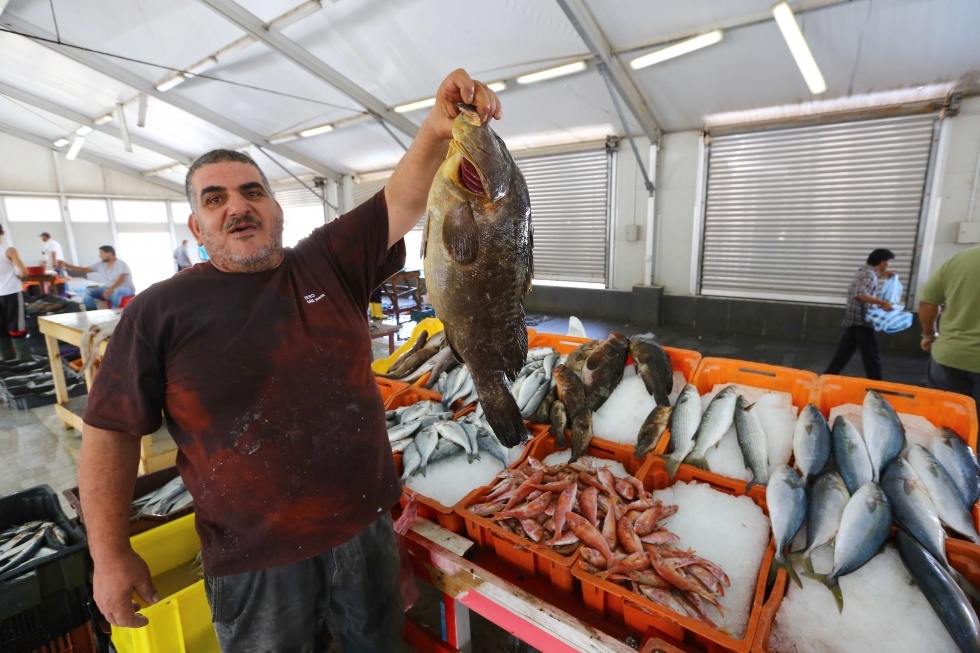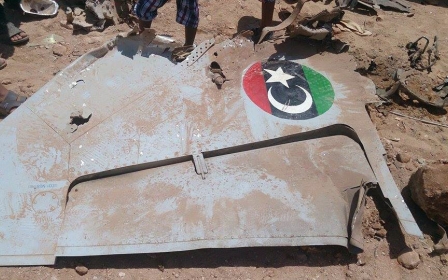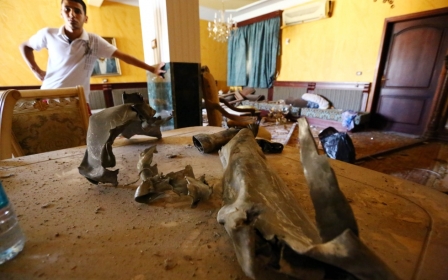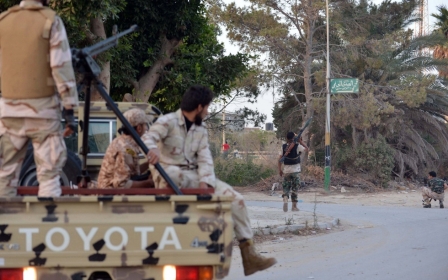Libyan capital's residents live amidst the sound of militia clashes

Regular thuds from rival militias' battles near Tripoli airport set the rhythm of daily life for the Libyan capital's residents, busy coping with power cuts and petrol shortages.
Noise from the clashes between the nationalists and Islamists' heavy weaponry may swell or soften from one day to another, but it never stops.
The only visible sign is a column of black smoke that has been rising from a fuel depot to the south of Tripoli ever since shooting set it alight at the end of July.
The battlefield is inaccessible to independent media, the toll is impossible to verify and the outcome uncertain.
Fighters from Misrata, east of Tripoli, and their Islamist allies claim to be making progress towards the airport, 30 kilometres (20 miles) south of the city, after seizing a strategic bridge and an old Libyan army base.
Their opponents, nationalist militiamen from Zintan in western Libya, say that they still hold the airport, closed since July 13, and have kept open their supply lines to the west of the capital.
After airstrikes by an unidentified plane on Monday raised the possibility of foreign intervention in Libya, civilians in the capital are already bracing themselves.
The direct collateral victims of the fighting are people living in Tripoli's southern neighbourhoods, who have fled in large numbers, as well as the three who were killed when militant Misratans fired rockets towards suburban areas on Tuesday.
A thousand families have sought refuge in Tarhuna and 700 more in Bani Walid, officials in the two towns southeast of Tripoli say.
For other people in the capital, the clashes just add to the difficulty of getting through each day.
"Power cuts last nine hours a day and we are never warned about them," complains 60 year-old Ali Tajuri, a resident of eastern Tripoli.
"The cuts weren't so bad during the revolt against Moamer Kadhafi," the long-time dictator overthrown in 2011, said the worker for a foreign company.
The power outages have disrupted life in the capital, where many shops are shut, civil servants have abandoned their posts and public services are practically at a standstill.
The national electricity company warned on Monday of a "risk of a general power cut unless network maintenance is carried out in the east of the country."
Fights over petrol
"Four hours of waiting then he nips in front of me," moans a driver outside a petrol station in the heart of the capital.
The two young men quickly come to blows and police monitoring the petrol station struggle to separate them.
The whole queue slams the government, which has been powerless to stop the chaos and has moved the parliament to Tobruk, 1,600 kilometres (1,000 miles) east of Tripoli, for security reasons.
Eventually, each driver fills up with petrol. The car logbook is stamped to prevent profiteering, but the black market is nevertheless flourishing.
"I filled up for 7 dinars ($6.6 at the official rate), and that costs 55 to 70 dinars ($44 to $56) on the black market," says taxi driver Ahmed al-Huni, who often uses petrol touts to avoid the long queues.
Millions of litres of petrol went up in smoke when the southern Tripoli fuel depot caught fire - the distribution company has been supplying Tripoli from small tankers docked at the port.
But it is clearly not enough. Many Tripoli petrol stations are shut down and the rest open only when a fresh delivery arrives.
The scarcity of petrol is affecting prices generally, like at the Tripoli fish market, where customers are bargaining more than usual and buying less, say stallholders.
However, the capital's residents are carrying on with their lives and still throng the waterfront cafes and roundabouts in the evening.
Nor have all foreign workers fled. Gad, an Egyptian who runs a laundry in Tripoli's Italianate centre, reckons he is "safer staying here than taking the road to Egypt.”
Middle East Eye propose une couverture et une analyse indépendantes et incomparables du Moyen-Orient, de l’Afrique du Nord et d’autres régions du monde. Pour en savoir plus sur la reprise de ce contenu et les frais qui s’appliquent, veuillez remplir ce formulaire [en anglais]. Pour en savoir plus sur MEE, cliquez ici [en anglais].




